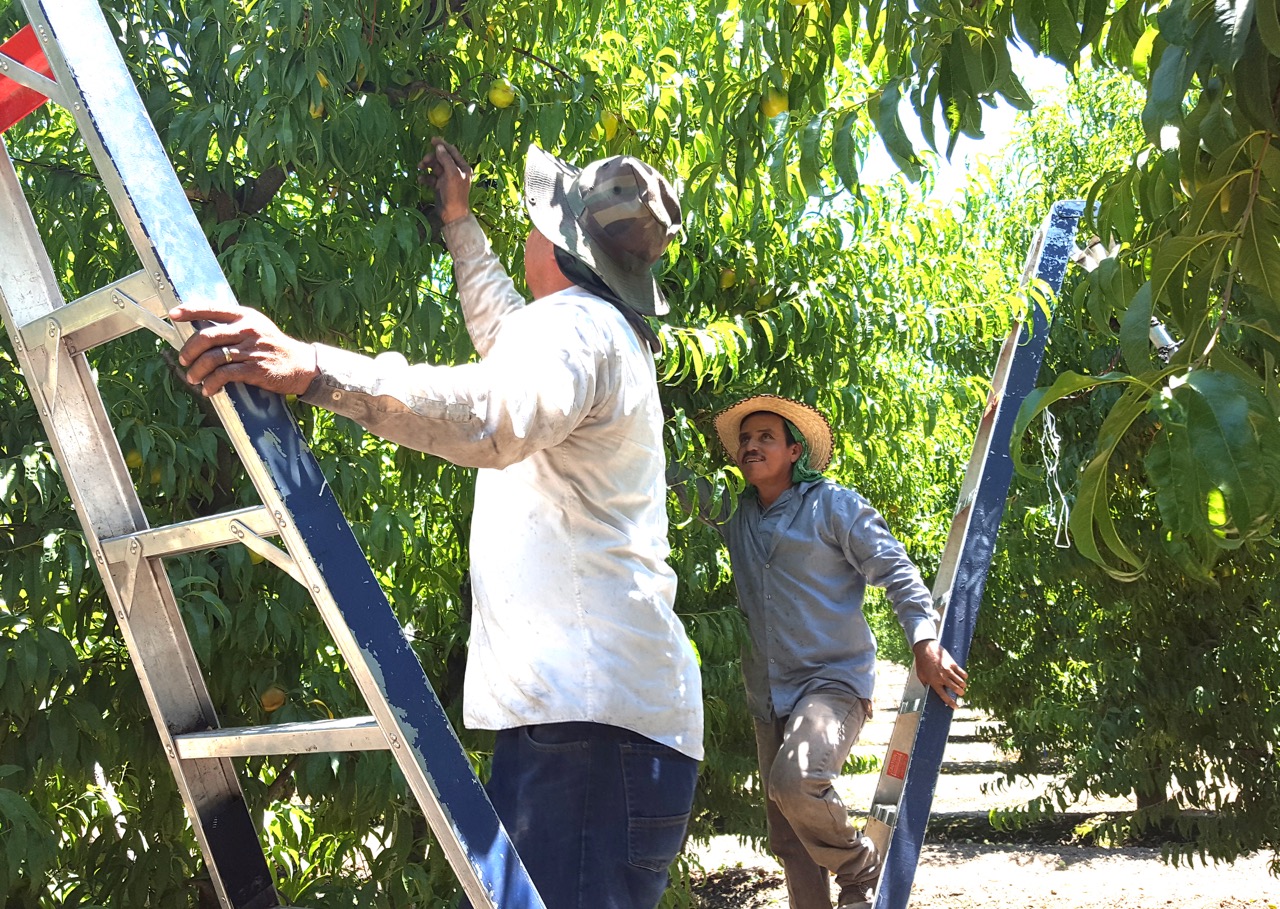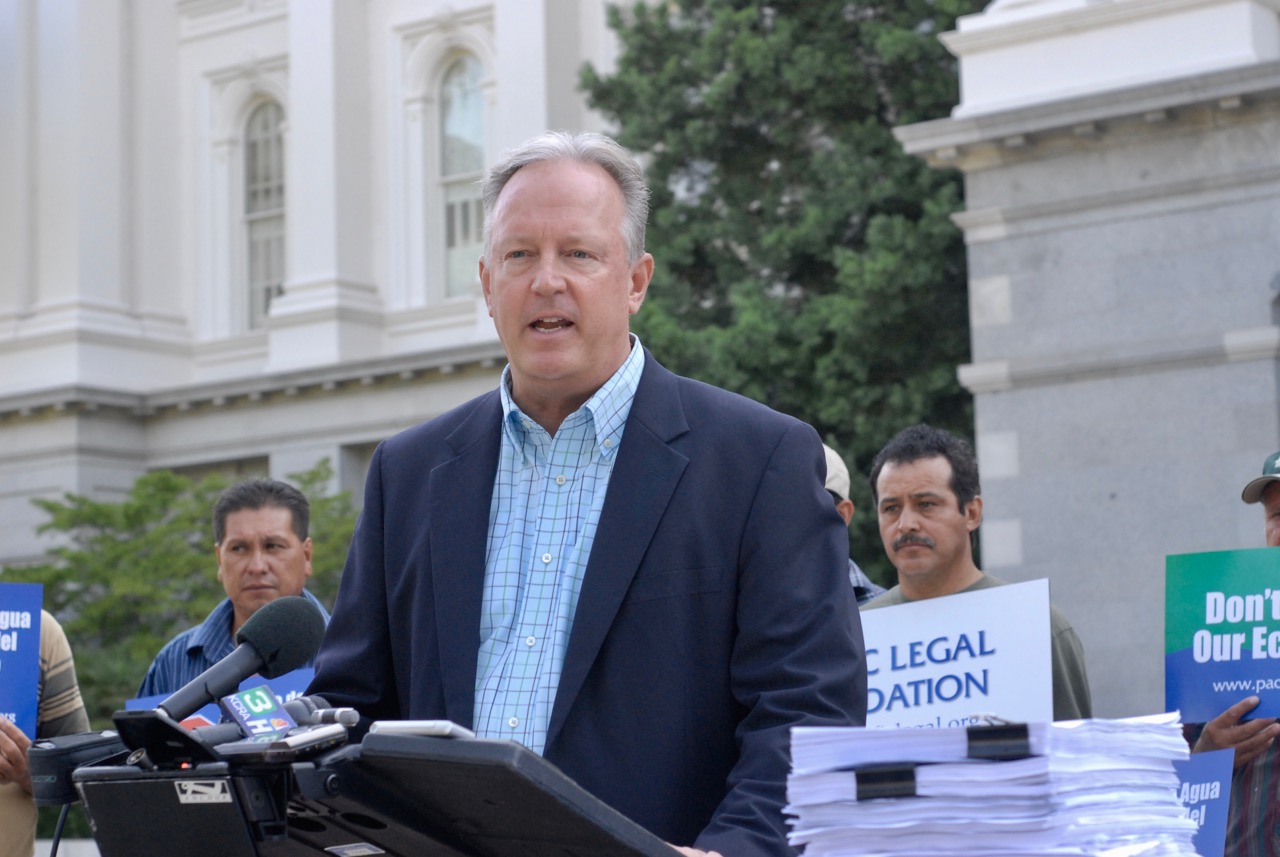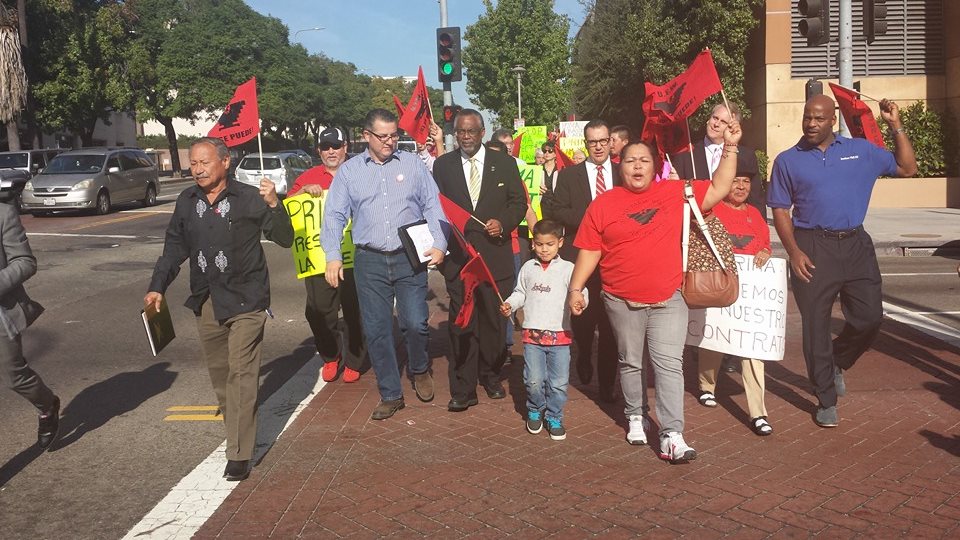Ian LeMay is New President of California Fresh Fruit Association
Former President George Radanovich Goes Back to Washington
News Release
This week, Randy Giumarra, the Chairman of the California Fresh Fruit Association (CFFA) Board of Directors, announced that Ian LeMay will serve as the new president of CFFA. LeMay will succeed George Radanovich, who has held the position since 2016 and will be leaving CFFA to promote sound ag labor policy in Washington, D.C.
Giumarra said, “Ian’s appointment is a reflection of our Board’s commitment to establishing long-term leadership for our industry.”
He continued, “Our board and I have worked closely with Ian over the past four years. We are confident in his abilities and look forward to his leadership. I’d also like to take this opportunity to thank George for his time, leadership, and impact that he has made over the last three years. George’s service is greatly appreciated by our entire membership.”
LeMay has dedicated his career to supporting and advocating for the continued success of California agriculture. Since 2015, LeMay has served as CFFA’s Director of Member Relations and Communications.
From 2011 to 2015, LeMay served as the District Director for Congressman Jim Costa, who represents California’s 16th Congressional District. As District Director, LeMay managed the Congressman’s district staff and advised the Congressman on a number of issues, including agriculture, water, and transportation. Prior to working for Congressman Costa, LeMay worked as a California Market Specialist for the Lindsay Corporation. LeMay is a recent graduate of the California Agricultural Leadership Program (Class 48).
 “I am humbled and appreciate the opportunity to continue to serve the members of the California Fresh Fruit Association in a new capacity,” LeMa said. “I came to the Association four years ago because I believe in its mission, deeply respect its history and see infinite potential in advocating for the permanent fresh fruit growers and shippers of California. I consider myself fortunate to have had the opportunity to observe two great Association leaders in Barry Bedwell and George Radanovich, and thank them for their commitment to bettering our industry. The challenges that face us are many. These have not been easy years for our industry, but I remain confident in the future of California agriculture and our opportunity to advocate for meaningful policy with a unified voice.”
“I am humbled and appreciate the opportunity to continue to serve the members of the California Fresh Fruit Association in a new capacity,” LeMa said. “I came to the Association four years ago because I believe in its mission, deeply respect its history and see infinite potential in advocating for the permanent fresh fruit growers and shippers of California. I consider myself fortunate to have had the opportunity to observe two great Association leaders in Barry Bedwell and George Radanovich, and thank them for their commitment to bettering our industry. The challenges that face us are many. These have not been easy years for our industry, but I remain confident in the future of California agriculture and our opportunity to advocate for meaningful policy with a unified voice.”
LeMay will begin his tenure as CFFA President on June 1st. Ian and his wife, Molly, reside in Fresno with their two children, Emery Rose and Ellison James, and will welcome their third child this August.
ABOUT THE ASSOCIATION
For more than eighty (80) years the California Fresh Fruit Association has been the primary government relations organization serving the fresh fruit industry. It is a voluntary public policy organization that works on behalf of our members—growers, shippers, marketers, and associates—on issues that specifically affect member commodities: fresh grapes, kiwis, pomegranates, cherries, blueberries, peaches, pears, apricots, nectarines, interspecific varieties, plums, apples and persimmons. It is the Association’s responsibility to serve as a liaison between regulatory and legislative authorities by acting as the unified voice of our members. The challenges are countless for growers, shippers, and marketers as they strive to remain viable in an ever-changing market. Increasing regulatory requirements make it difficult to flourish, regardless of the size of the operation.
The Association’s dedicated staff advocates daily in the best interest of our members to ensure that regulators and legislators are using sound science and accurate information when considering laws or rules that will be imposed on industry members. However, aside from the variety of issues the Association works on, there is an important networking component. As each company has its own business interest, the membership as a whole shares a common, vested interest in the long-term health of tree fruit, fresh grape and berry communities in California.



































